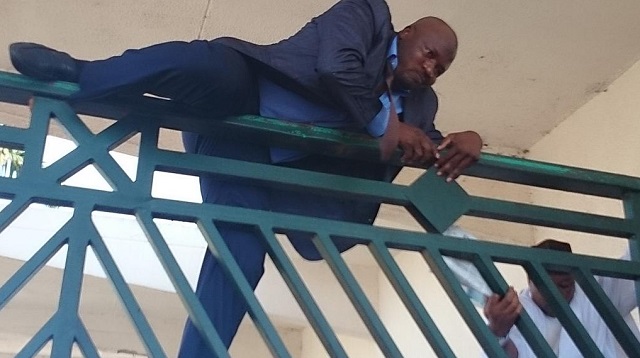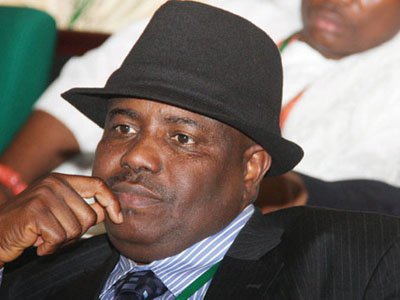The reality finally dawns and federal government’s response, strangely delayed and almost belated, confirms that the days of waste and profligacy, particularly in government circles, may be over.
Even though it tried to downplay the import, the government has now been forced to announce some austerity measures in response to the continuous fall in oil price and its effect on fiscal stability.
It is an inevitable route to take. Low oil prices mean high anxiety for an oil producing nation like Nigeria where oil revenues account for more than 70% of total earnings. Every dollar fall in the oil price means that Nigeria loses billions of naira in revenue.
The implication, according to Ngozi Okonjo-Iweala, the Minister of Finance and the Coordinator of the Economy, is a quick revision of the 2015-2017 Medium Term Expenditure Framework recently submitted to the National Assembly. The MTEF, which had proposed a benchmark of $78 per barrel of oil for the 2015 budget has now been revised downwards to $73 per barrel.
Advertisement
Just like the Muhammadu Buhari administration did exactly 20 years ago by announcing austerity measures when petroleum prices collapsed amidst mounting debts, the Jonathan administration is now forced to advocate an important value that it is hardly associated with – prudence! At the press conference last Sunday where Okonjo-Iweala admitted that austere times were finally here, luxury items expectedly became the first targets.
Owners of private jets, for example, will pay a lot more for the luxury that comes with the privilege of ownership and usage. So are connoisseurs of choice liquor like Champagne, which has recently found Nigeria as its biggest market in the world. Wealthy lads who delight in yachts and exotic cars will also pay more for their indulgence.
Civil servants and government appointees too will immediately feel the pang. Trainings and trips of any sort, whether local or foreign, will be severely curtailed and as details are being worked out, the days of needless junketing and estacodes might just well be over. The Central Bank of Nigeria, which is working with the Ministry of Finance on this, is expected to announce additional measures next week.
Advertisement
The Minister tried hard to be reassuring, saying though it might be rough, but we are not necessarily at the crossroads yet. Critical infrastructure projects would not be affected and public sector wages, she was emphatic, would not suffer any setback. But she sounded very typical and predictable by cleverly omitting the extent of sacrifice that government functionaries like her good self is willing to make and the type of prudential lifestyle that Jonathan’s administration has agreed to adopt.
Would there, for instance, be a significant reduction in the wages and allowances of political office holders and legislators; a reduction in the presidential fleet and convoys of public officers as well as foreign medical treatment, holidays and pilgrimages at public expense for public officers? In the event that a foreign trip becomes necessary for the President or his deputy, for example, would we witness for the first time a significant reduction in the retinue of aides and hangers-on that accompany their principals?
It is important that such cost-cutting measures are considered and properly communicated so that Nigerians do not think that Okonjo-Iweala’s idea of austerity measure is shifting the burden to the rich, who can afford it anyway and the poor that is already over-burdened, while public officers continue in wanton lifestyle.
This is necessary to correct the impression created by President Jonathan a few months ago that the huge number of private jets that litter Nigerian airports, the mobility of a few consistent band of travelers and their purchasing power in luxury goods is a measure of prosperity for our country. It must be getting clear by now that sustainable economic performance is not measured by the type of ephemeral items that are traceable mainly to government contractors and their cronies.
Advertisement
Okonjo-Iweala said the decline in oil prices was an opportunity for the government to focus on greater diversification and refocus effort towards non-oil sector in preparation for a future with less oil revenue.
This is an unnecessary platitude in the face of a looming danger.
The austerity measures arising from the oil dip is simply a reminder that we have left many things undone and that we may have been caught napping. By removing $2billion from the Excess Crude Account as government faces cash crunch, we are not only depleting a scanty reserve base, but may have opened ourselves up for the days of the locust.
We failed to prepare like the Angolans, who saw the handwriting on the wall early enough and had, since July, cut subsidies and taken measures to shield its economy from the impact of the oil shock.
Advertisement
Beyond the desire to develop other sectors which, with sincerity of purpose, we are capable of doing and the urgent need to reduce government spending and make political offices unattractive as the Theophilus Danjuma-led Presidential Committee advised in 2011, the government must also be aware of the dynamics that keep oil price unstable, ostensibly in favour of some regions of the world.
There is wisdom in examining the words of Maria van der Hoeven, the Executive Director of International Energy Agency, who recently told Reuters that “some 98% of crude oil and condensates from the United States have a break-even price of below $80, and 82% had a break-even price of $60 or lower.”
Advertisement
In the event that oil price falls below $60, what will Nigeria do?
Advertisement
Views expressed by contributors are strictly personal and not of TheCable.
Add a comment



